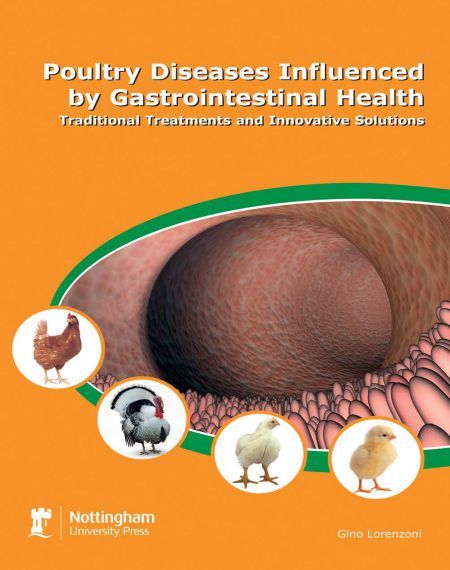Poultry Diseases Influenced by Gastrointestinal Health: Traditional Treatments and Innovative Solutions. Feed costs represent a large percentage of the operational expenses associated with animal production.
Poultry Diseases Influenced by Gastrointestinal Health: Traditional Treatments and Innovative Solutions

It is for this reason that producers should pay close attention to the efficient utilization (absorption) of feed. From a strict point of view the gastrointestinal lumen, from mouth to anus, corresponds to the external environment and the intestinal mucosa represents the barrier that separates the animal from the environment. Besides its absorptive capacities the intestine must provide adequate protection against pathogenic bacteria. Considering the billions of bacteria that populate the intestinal tract this is not a trivial task.
The maintenance of a healthy gastrointestinal tract insures that nutrients are absorbed at an optimum rate and that bacteria are kept in adequate numbers and confined to their natural niches. Whenever the integrity of the intestinal mucosa is compromised, nutrient absorption decreases. In addition, part of the effectively absorbed nutrients are directed to repair the damaged area and to support the immune system which starts working relentlessly until the intestinal insult is eliminated. In case of prolonged activity, inflammatory processes indeed drain plenty of energy which is otherwise stored as body tissue.
For the mentioned reasons it is wise to use all the available means to ensure that our flock counts with the optimal conditions to achieve the best possible feed conversion. This book focuses on gastrointestinal diseases of poultry and on poultry diseases that do not have an intestinal origin but that are somehow influenced by intestinal heath. In countless occasions, improvement in flock management has a huge beneficial impact on several of the conditions that will be covered in this book, and thus technical advice from poultry veterinarians and our team of poultry specialists is given.
The number of countries that are currently banning antibiotics for non-therapeutic purposes in animal husbandry is increasing; new tools are emerging to control or to ameliorate poultry diseases using an environmentally friendly approach. Among the new available tools organic acids, phytogenics, and especially probiotics will be covered in this book. In addition, conventional treatments for poultry diseases are also listed.
We hope that this guide will increment your knowledge of poultry diseases and poultry management, and that at the end of the rearing cycle you may see this reflected on your pay check.
Password: pdflibrary.net
